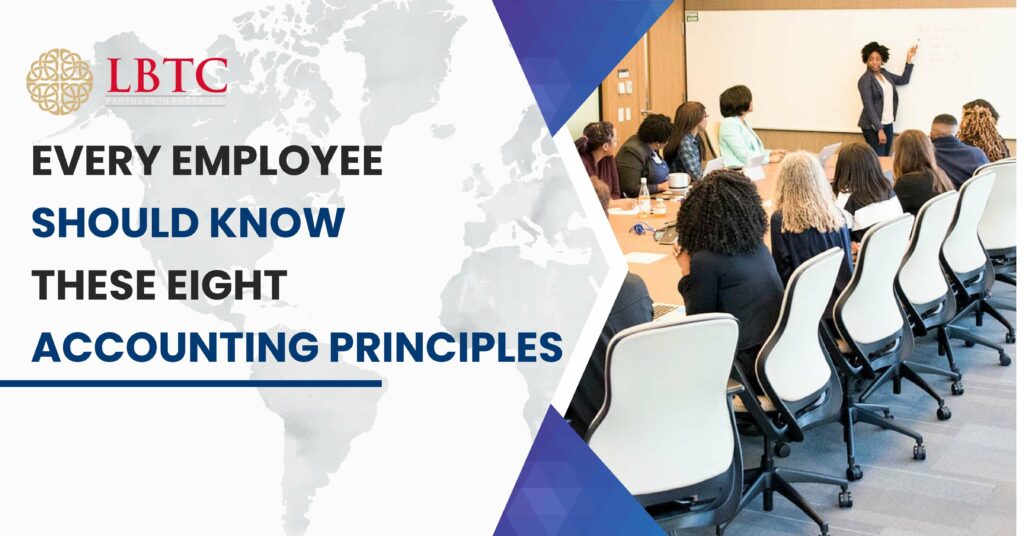
The degree you’ve just finished may have been in accounting, but chances are it didn’t teach you everything you need to know to be good at your job as an accountant. While some of the things in this list are obvious, others might surprise you; it’s never too late to learn new skills and improve your existing ones. If you want to become the best accountant you can be, it’s important to familiarize yourself with these eight accounting principles every graduate should know.
1) The Balance Sheet
The balance sheet refers to a condensed financial snapshot of a company. The balance sheet shows what a company owns (its assets) and what it owes (its liabilities). You may also hear it referred to as the statement of financial position, and you’ll typically find it at the beginning of annual reports. To keep things simple, focus on understanding just three main items: what a company owns, what it owes, and how much money is in its bank account.
2) Depreciation
The depreciation of an asset is a process used to allocate and simplify costs associated with an asset over its lifetime. Cost allocations for depreciation can be done on various bases (such as straight-line, declining balance or sum-of-the year’s digits) using various methods (accelerated cost recovery system, double-declining balance, sum of years’ digits, straight-line method). The result is a single amount representing how much it costs to own and operate a piece of equipment over its useful life.
3) Taxes
You’re not likely to get out of paying taxes, so you may as well know how they work. If you’re working for a company, your employer will withhold taxes for you and send them to tax authorities throughout the year on your behalf. But you should still learn about income taxes—your withholdings can differ from your actual tax liability, and knowing how and when to pay your federal and state income taxes is important.
4) Cash Flow Statement
A cash flow statement is a financial statement that lists all of an organization’s cash receipts and disbursements. It is one of four primary financial statements used by companies in accordance with Generally Accepted Accounting Principles (GAAP). The other three statements are a balance sheet, an income statement, and a statement of retained earnings. The purpose of all four statements is to provide enough information about an organization’s finances to allow for meaningful comparisons over time.
5) Accrual Method of Accounting
When a business is run on an accrual basis, it records income when it’s earned and expenses when they’re incurred—even if payment is received or an obligation is fulfilled at a later date. Under such accounting, revenue and expense accounts are balanced at all times through double-entry bookkeeping; that is, any time there’s a credit in one account (income), there must be an equal debit in another (expense). The opposite principle applies to balance sheet accounts.
6) Pledges and Grants
Pledges and grants are gifts that you give to yourself. By taking funds out of your business early on, you’re allowing room for mistakes. If your business is successful, great! You can pay off your loan or grant and have an extra boost of cash to add to your profits. However, if things don’t go as planned and you fail, you’ve only lost a few thousand dollars versus potentially hundreds of thousands—or even millions—down the road.
7) Inventories
Inventories are one of three general ledger accounts and assets and liabilities. Inventories account for items that are to be sold or used by a company in producing its goods or services. Examples include raw materials, work-in-progress, packaging materials and finished goods. Some companies also keep track of safety stock – extra inventory held to ensure continuous production – in their inventories (sometimes an asset account on its own).
8) Revenue Recognition
Recognizing revenue on your financial statements is a critical accounting principle, but it’s not always easy to interpret GAAP (the Generally Accepted Accounting Principles used by most businesses). There are many different ways to recognize revenue; understanding how each applies and when you can use them can help you be a better business person.
Conclusion
No matter your career path, you should always keep up with financial fundamentals. More and more companies are opening their books to employees to help prepare them for a management role, so take advantage of these opportunities to keep sharpening your accounting skills with an IFRS course with LBTC. Learning these fundamentals will serve you well no matter where your career takes you.

Leave a Reply